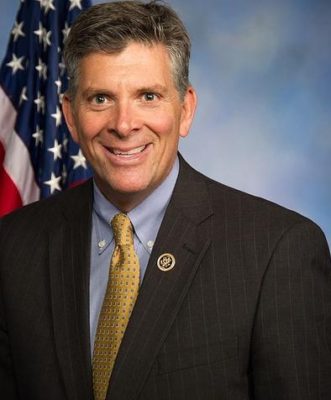Congressman Darin LaHood recently asked Illinois Farm Bureau President Richard Guebert, Jr. to talk to the House Ways & Means Committee about the Phase One trade deal with China. LaHood said that Guebert properly articulated the effect that international trade has on Illinois’ farmers. “Earlier this week, I invited President Guebert to testify in front of the House Ways & Means Committee to talk about the importance of trade to our farmers and the importance of agriculture in Illinois as well as the impact of the Phase One deal with China. I think he reminded people of 96% of the market for corn & soybeans is outside of the United States. The Phase One deal with China is not perfect but it is definitely progress as it relates to agriculture. In the agreement specifically, and President Guebert talked about it, almost 40-50 billion dollars over the next two years of corn and soybeans purchases as well as poultry, livestock, and pork. It helps Illinois producers and farmers as well as agribusiness. He also reminded everyone that agriculture is the #1 business in Illinois. I thought President Guebert articulated that very well, represented rural America and agriculture in a very positive way. I think he was well-received by Democrats and Republicans on the committee.”
LaHood says that Phase Two will focus on intellectual property. “Obviously trade with China is important but there are many systemic problems with China as it relates to intellectual property. Really for 25 years, China has been ripping off the United States stealing our intellectual property having forced technology transfers and engaging in cyber theft. President Trump has really engaged with that idea on how to stop that, and that’s how we got into the trade war with China over the last two years. That was really unfortunate. Phase One really deals with purchasing more products up to about $200 billion. A quarter of that is ag products but there’s also manufacturing, lots of heavy equipment that are purchased with that deal; but it doesn’t stop China from ripping us off. Phase Two will build on Phase One and work on enforcement mechanisms of holding China accountable, making sure they are stopping the theft of our intellectual property. Negotiations have already begun on Phase Two in holding China accountable. I would also mention that when China was brought into the World Trade Organization in 2001, we were told they would abide by all the same rules, standards, and laws that every other industrialized country in the world was abiding by. Clearly, that has not happened over the last 20 years. We want to have an enforcement mechanism to put in to hold them accountable so there are consequences for continuing to rip us off.”
Guebert said during his question and answer session that he fully supported the Phase One trade deal, despite work still needing to be done but Phase Two should address biotech and secure the reduction of tariffs on other agricultural commodities as well as steel and aluminum outside of the Ag sector. Phase two is expected to remove most tariffs on goods from China. Some analysts believe the second phase of the deal is unlikely to happen because of China’s state support of enterprise as well as ongoing systemic trade issues because China doesn’t view the U.S. As a reliable trade partner.




